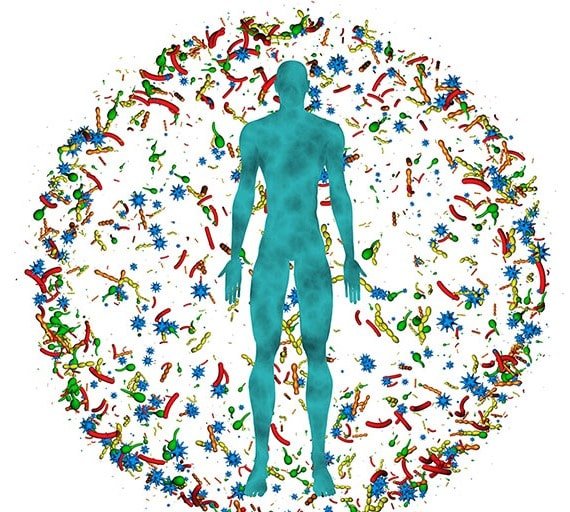The intricate world of the human microbiome is transforming our understanding of health and disease. Recent decades have revealed that the trillions of microorganisms inhabiting our bodies not only assist in digestion but also play crucial roles in immune function, mental well-being, and even chronic disease prevention. This comprehensive article explores the multifaceted impact of the microbiome, delving into its composition, functions, and the factors that shape its dynamic ecosystem. In doing so, we highlight the latest scientific insights and practical strategies to harness the power of these microscopic allies for better health.
Over the past few years, research on the microbiome has surged, bringing forth evidence that these microbial communities are integral to our overall well-being. Once considered mere passengers in the human body, bacteria, viruses, fungi, and other microorganisms now command attention as critical regulators of metabolism, immunity, and even behavior. The field of microbiome research is expanding rapidly, with scientists uncovering connections between gut health and conditions ranging from obesity to depression.
Understanding the microbiome’s impact is essential not only for medical professionals but also for anyone seeking to optimize health. By learning how these microscopic organisms interact with our bodies, we can develop strategies to foster a balanced microbial environment, ultimately enhancing quality of life. This article provides a deep dive into the microbiome, its diverse roles, and how lifestyle choices can influence its composition.
What Is the Microbiome?
The term “microbiome” refers to the collective genome of all the microorganisms residing in and on the human body. These microorganisms include bacteria, archaea, viruses, and fungi that coexist in a symbiotic relationship with their host. Far from being passive inhabitants, these microbes perform essential functions such as breaking down complex carbohydrates, synthesizing vitamins, and defending against pathogens.
Composition of the Microbiome
The human microbiome is incredibly diverse, with each body site—such as the gut, skin, mouth, and respiratory tract—harboring a distinct microbial community. The gut microbiota, in particular, has attracted significant attention due to its profound influence on digestion and immune function. The predominant groups of bacteria in the gut include Firmicutes, Bacteroidetes, Actinobacteria, and Proteobacteria. In addition to bacteria, the gut hosts viruses, bacteriophages, fungi, and protozoa, all of which contribute to a balanced ecosystem.
Some key characteristics of the microbiome include:
A. Diversity: A wide variety of species coexist, each performing specific functions.
B. Stability: A balanced microbiome is maintained by complex interactions among microbial species and the host’s immune system.
C. Adaptability: The microbiome can shift in response to dietary changes, medication, stress, and other environmental factors.
This adaptability means that the microbiome is both resilient and vulnerable to disturbances, making it a focal point for therapeutic interventions.
Historical Evolution of Microbiome Research
For centuries, microorganisms were primarily viewed as pathogens. The discovery of antibiotics in the 20th century reinforced this perspective, leading to a focus on eliminating harmful bacteria. However, advancements in DNA sequencing and metagenomics have revolutionized our ability to study microbial communities. These technologies have unveiled the vast diversity of non-pathogenic microbes that inhabit our bodies and underscored their importance in maintaining health.
Early studies often concentrated on culturing bacteria from stool samples, which provided a limited snapshot of the microbial world. Modern research, in contrast, uses high-throughput sequencing to identify even those organisms that cannot be easily grown in the lab. This shift in methodology has led to a more nuanced understanding of the microbiome’s role in human physiology and disease.
The Microbiome’s Role in Digestion and Nutrition
One of the most well-recognized functions of the gut microbiome is its role in digestion. The human digestive system is not equipped to break down certain complex carbohydrates and fibers on its own. Here, gut microbes come to the rescue by fermenting these compounds into short-chain fatty acids (SCFAs) like butyrate, propionate, and acetate. These SCFAs are not only an energy source for colon cells but also play a role in regulating metabolism and reducing inflammation.
Key Digestive Functions of the Microbiome
A. Fiber Fermentation: Microbes break down dietary fibers that human enzymes cannot digest, producing beneficial byproducts.
B. Vitamin Synthesis: Certain gut bacteria produce essential vitamins, including vitamin K and some B vitamins.
C. Nutrient Absorption: The breakdown of complex molecules facilitates the absorption of nutrients, supporting overall metabolism.
Moreover, the microbiome contributes to bile acid metabolism and modulates the gut barrier function, preventing harmful substances from entering the bloodstream. These processes are crucial for maintaining digestive health and preventing conditions such as irritable bowel syndrome (IBS) and inflammatory bowel disease (IBD).
Impact on the Immune System
Beyond its role in digestion, the microbiome is a critical component of the immune system. The gut is the largest immune organ in the body, and the microbial inhabitants help educate and modulate immune responses. A healthy microbiome promotes the development of regulatory T cells and the production of anti-inflammatory cytokines, thereby maintaining a delicate balance between immune tolerance and response.
How the Microbiome Supports Immunity
A. Barrier Function: A well-balanced microbial community reinforces the intestinal lining, reducing the risk of infections.
B. Immune Regulation: Microbial metabolites influence immune cell differentiation and function.
C. Pathogen Resistance: A diverse microbiome competes with harmful pathogens, limiting their ability to colonize the gut.
Disruptions in the microbiome—known as dysbiosis—have been linked to a range of immune-related disorders, including allergies, autoimmune diseases, and even certain cancers. Restoring balance through dietary interventions or probiotic supplementation is an area of active research, aiming to harness the immune-modulating properties of gut microbes.
The Gut-Brain Axis: Connecting Microbiome and Mental Health
Recent discoveries have highlighted a fascinating communication network between the gut and the brain, known as the gut-brain axis. This bidirectional communication involves neural, hormonal, and immunological pathways, enabling gut microbes to influence brain function and behavior.
Mechanisms of the Gut-Brain Connection
A. Neurotransmitter Production: Gut bacteria produce neurotransmitters such as serotonin and gamma-aminobutyric acid (GABA), which play roles in mood regulation.
B. Inflammatory Modulation: Microbial metabolites can influence systemic inflammation, which is linked to depression and anxiety.
C. Vagal Nerve Signaling: The vagus nerve serves as a communication highway between the gut and the brain, transmitting signals that affect emotional and cognitive states.
These mechanisms suggest that maintaining a healthy microbiome could be a potential strategy for improving mental health. Emerging research is investigating how probiotic and prebiotic interventions might alleviate symptoms of depression, anxiety, and even neurodegenerative diseases by modulating the gut-brain axis.
Factors Influencing the Microbiome
The composition and function of the microbiome are influenced by a complex interplay of factors. Both intrinsic factors, such as genetics and age, and extrinsic factors, including diet, environment, and lifestyle, can impact microbial diversity and stability.
Major Factors Shaping the Microbiome
A. Diet: The types and amounts of food consumed can dramatically alter the microbial community. Diets rich in fiber, fruits, and vegetables tend to support a diverse and healthy microbiome, whereas high-fat and high-sugar diets may contribute to dysbiosis.
B. Antibiotic Use: While antibiotics are life-saving medications, their overuse can disrupt the microbiome by eliminating beneficial bacteria along with harmful ones.
C. Environmental Exposures: Factors such as pollutants, stress, and hygiene practices play a role in determining microbial composition.
D. Genetics: An individual’s genetic makeup can influence the types of bacteria that thrive in their gut, affecting overall health.
Understanding these factors is crucial for developing personalized strategies to optimize the microbiome and, by extension, improve health outcomes.

The Role of Probiotics and Prebiotics
Probiotics are live microorganisms that, when administered in adequate amounts, confer a health benefit on the host. Prebiotics, on the other hand, are non-digestible food ingredients that stimulate the growth or activity of beneficial bacteria in the gut. Together, these components can help restore balance in the microbiome, particularly after disturbances such as antibiotic treatment.
Benefits and Considerations
A. Enhancing Digestion: Probiotics can aid in breaking down food substances, enhancing nutrient absorption.
B. Boosting Immunity: Both probiotics and prebiotics support immune function by promoting a balanced microbial environment.
C. Preventing Dysbiosis: Regular consumption of probiotic-rich foods (such as yogurt, kefir, and fermented vegetables) and prebiotic fibers (found in garlic, onions, and bananas) can help maintain microbial diversity.
D. Mental Health Support: Emerging research suggests that probiotics may have a role in reducing symptoms of anxiety and depression by modulating the gut-brain axis.
When selecting probiotic supplements or foods, it is important to consider the specific strains of bacteria and their documented benefits. Not all probiotics are created equal, and the efficacy of a particular product may vary based on the strain and dosage.
Dysbiosis: When the Microbiome Is Out of Balance
Dysbiosis refers to an imbalance in the microbial community, which can result from various factors including poor diet, stress, illness, and excessive antibiotic use. This imbalance can lead to several health problems, ranging from gastrointestinal disorders to systemic inflammation and metabolic issues.
Potential Consequences of Dysbiosis
A. Digestive Disorders: Conditions such as IBS, IBD, and celiac disease have been linked to microbial imbalances.
B. Metabolic Dysregulation: Dysbiosis can influence weight gain, insulin resistance, and other metabolic disturbances.
C. Immune Dysfunction: An imbalanced microbiome may contribute to the development of allergies and autoimmune conditions.
D. Neurological Impact: Emerging evidence connects dysbiosis with mental health issues, highlighting its role in the gut-brain axis.
Addressing dysbiosis typically involves dietary modifications, the use of probiotics and prebiotics, and sometimes more targeted therapies such as fecal microbiota transplantation (FMT) in severe cases. Early intervention can help restore microbial balance and mitigate the health risks associated with dysbiosis.
Practical Strategies to Maintain a Healthy Microbiome
Given the significant impact of the microbiome on overall health, adopting lifestyle and dietary practices that nurture a balanced microbial community is essential. Here are some practical strategies:
A. Adopt a Diverse Diet: A varied diet rich in whole grains, fruits, vegetables, and fermented foods provides the necessary nutrients and fibers to support microbial diversity.
B. Incorporate Probiotics and Prebiotics: Regularly include foods and supplements that supply beneficial bacteria and the fibers they thrive on.
C. Limit Antibiotic Use: Use antibiotics only when necessary and under medical guidance, as indiscriminate use can disrupt microbial balance.
D. Manage Stress: Chronic stress can negatively impact the gut microbiome. Techniques such as meditation, exercise, and adequate sleep are vital for stress management.
E. Regular Physical Activity: Exercise has been shown to promote a diverse microbiome and enhance overall health.
F. Stay Hydrated: Proper hydration supports digestive processes and the maintenance of a healthy gut environment.
By implementing these strategies, individuals can create a supportive environment for their microbiome, ultimately enhancing their immune function, metabolism, and mental well-being.
Advances in Microbiome Research and Future Directions
The rapid evolution of microbiome research is opening new avenues for innovative therapies and personalized medicine. With ongoing studies exploring the connections between microbial composition and a wide array of health conditions, the future holds promise for targeted interventions that can modify the microbiome to treat or prevent disease.
Emerging Areas of Research
A. Personalized Nutrition: Tailoring diets based on an individual’s microbial profile is becoming a reality. Personalized nutrition plans may help optimize health by promoting beneficial microbes while curbing harmful ones.
B. Microbial Therapeutics: Novel treatments, including engineered probiotics and microbial consortia, are being developed to address conditions such as inflammatory bowel disease, obesity, and even neurological disorders.
C. Gut-Brain Axis Interventions: Research continues to explore how modulating the microbiome can alleviate mental health conditions, potentially leading to new treatments for depression, anxiety, and neurodegenerative diseases.
D. Immune Modulation: Understanding the interplay between the microbiome and the immune system could pave the way for therapies that target autoimmune diseases and allergies.
As the field matures, interdisciplinary collaboration between microbiologists, clinicians, and data scientists will be crucial in translating these research findings into practical applications. The promise of microbiome-based interventions is vast, offering hope for treatments that are both natural and highly specific.
The Economic and Social Implications
Beyond individual health benefits, a deeper understanding of the microbiome carries significant economic and social implications. The growing market for probiotics, prebiotics, and microbiome-related therapeutics reflects a shift in consumer behavior towards holistic health and preventive medicine. Industries ranging from food and beverage to pharmaceuticals are investing heavily in research and development to harness the potential of the microbiome.
Economic Opportunities
A. Nutraceuticals and Functional Foods: Companies are developing food products fortified with probiotics and prebiotics, catering to health-conscious consumers.
B. Pharmaceutical Innovations: Targeted microbial therapies represent a new frontier in drug development, with the potential to revolutionize treatment paradigms for chronic diseases.
C. Diagnostic Tools: Advances in sequencing technologies are enabling more accurate and affordable assessments of an individual’s microbial composition, paving the way for personalized health solutions.
Socially, the democratization of microbiome science is empowering individuals to take control of their health through informed dietary and lifestyle choices. As public awareness grows, educational initiatives and community programs focused on gut health are likely to become more prevalent.
Overcoming Challenges in Microbiome Studies
Despite the tremendous progress in the field, researchers still face significant challenges in understanding and manipulating the microbiome. Variability among individuals, the complexity of microbial ecosystems, and the influence of external factors make it difficult to draw definitive conclusions. Moreover, ethical and regulatory considerations arise as new treatments based on microbiome modulation are developed.
Key Challenges
A. Interindividual Variability: The composition of the microbiome can vary greatly between individuals due to genetics, environment, and lifestyle, making standardized treatments challenging.
B. Complex Interactions: The dynamic interactions among microbial species and their host require sophisticated models and analytical techniques to decipher.
C. Causality vs. Correlation: Distinguishing between cause and effect in microbiome studies is complex; many observed associations require further validation through controlled experiments.
D. Regulatory Hurdles: As novel therapies emerge, ensuring their safety and efficacy within existing regulatory frameworks is a pressing concern.
Addressing these challenges will require continued investment in research infrastructure, advanced analytical tools, and cross-disciplinary collaboration.

Integrating Microbiome Health Into Daily Life
For many, the concept of the microbiome may seem abstract. However, there are practical steps that anyone can take to support a healthy microbial balance in everyday life. Integrating microbiome-friendly habits into daily routines not only contributes to digestive and immune health but also has broader implications for mental and metabolic well-being.
Daily Habits to Foster a Healthy Microbiome
A. Mindful Eating: Prioritize whole, unprocessed foods that provide a range of fibers and nutrients to nurture beneficial bacteria.
B. Routine Exercise: Incorporate regular physical activity into your schedule to promote overall health and microbial diversity.
C. Quality Sleep: Ensure you get enough restorative sleep, which plays a critical role in maintaining the body’s natural rhythms and microbial balance.
D. Stress Reduction Techniques: Engage in mindfulness practices, yoga, or meditation to mitigate the negative effects of chronic stress on the gut.
E. Regular Health Check-Ups: Monitoring your health with periodic check-ups can help detect early signs of dysbiosis or other conditions related to an imbalanced microbiome.
By making these habits a part of daily life, individuals can proactively support their microbiome and overall health.
Case Studies and Real-World Applications
To better understand the practical applications of microbiome research, it is instructive to examine real-world examples where targeted interventions have led to improved health outcomes. For instance, patients suffering from recurrent Clostridioides difficile infections have shown remarkable recovery following fecal microbiota transplantation (FMT), a procedure that restores microbial diversity by transferring stool from a healthy donor. Similarly, several clinical trials have demonstrated that probiotic supplementation can alleviate symptoms of IBS and improve metabolic markers in individuals with type 2 diabetes.
Lessons from Clinical Interventions
A. FMT Success: Restoring microbial diversity in cases of severe dysbiosis has proven to be a life-saving intervention for certain gastrointestinal infections.
B. Probiotic Trials: Well-designed clinical studies have highlighted the benefits of specific probiotic strains in managing conditions such as IBS, allergies, and even depression.
C. Dietary Modifications: Nutritional interventions that focus on increasing fiber and reducing processed foods have consistently been shown to improve the overall health of the gut microbiome.
These examples underscore the potential for microbiome-based therapies to revolutionize conventional approaches to treatment and prevention.
Conclusion
The human microbiome represents a frontier in medical science, bridging the gap between nutrition, immunity, and mental health. As research continues to unravel the complex interactions between our microbial companions and our bodily functions, it becomes increasingly clear that maintaining a balanced microbiome is key to long-term health and disease prevention. By adopting a diverse, fiber-rich diet, engaging in regular physical activity, managing stress, and considering probiotic and prebiotic supplementation, individuals can nurture their microbial communities and harness their benefits.
The economic, clinical, and societal implications of microbiome research are profound. From personalized nutrition plans to innovative therapeutic interventions, the future of medicine may well lie in our ability to understand and modulate the microbiome. As we continue to explore this intricate ecosystem, the promise of improved health outcomes and enhanced quality of life becomes ever more attainable.
In summary, understanding the microbiome’s impact is not just an academic pursuit—it is a practical guide to achieving holistic well-being. By integrating scientific insights with everyday habits, we can transform our health from the inside out and pave the way for a new era of personalized, preventative medicine.












